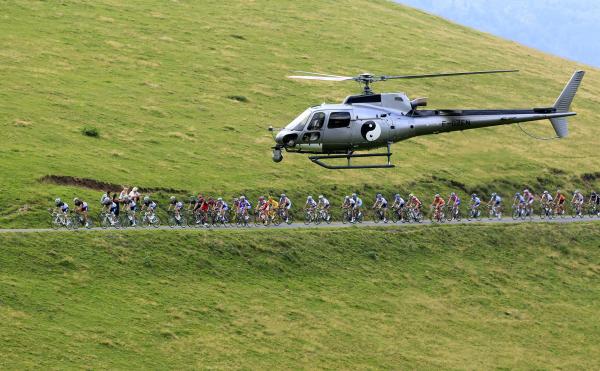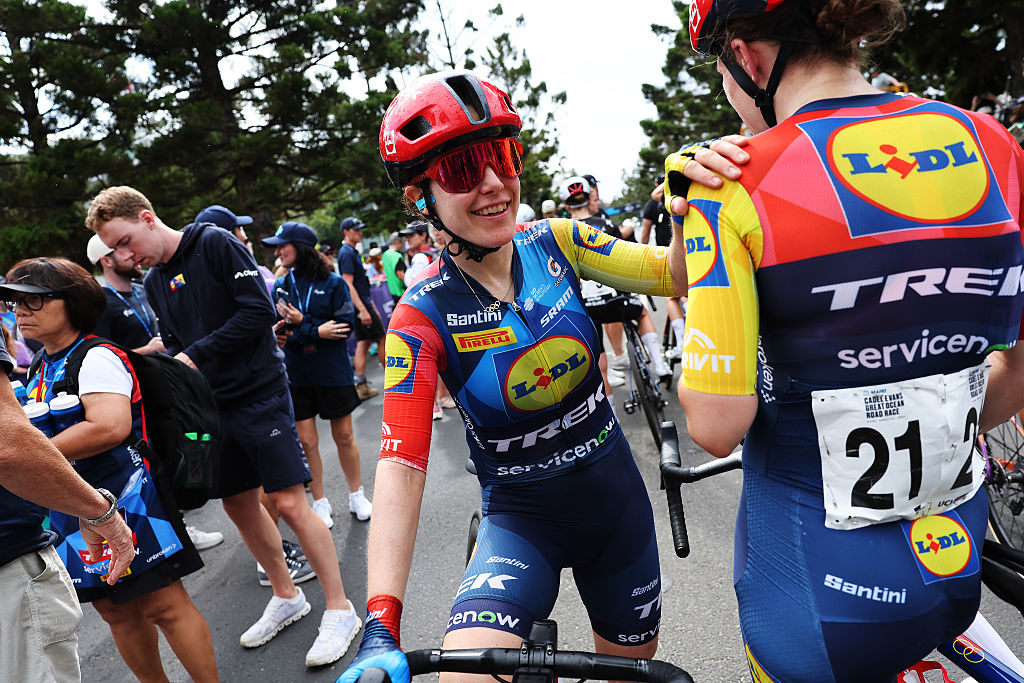The myth of television rights
Why TV revenues won't save cycling
The latest race content, interviews, features, reviews and expert buying guides, direct to your inbox!
You are now subscribed
Your newsletter sign-up was successful

Many publications, including cyclingnews.com, regularly refer to TV revenue sharing as a way to make teams more stable. This theory implies that teams are struggling to find sponsors and survive, while race organizers make big profits selling television rights.
So let's examine the three sides of this discussion:
1) "Teams struggling to make ends meet". There's no doubt about this, as is clearly shown in the number of teams that disappeared this year. But just like in years past, the Tour de France will start with 22 teams of nine riders next year, and statements such as "five teams have folded and dozens of riders are struggling to find teams" fail to paint the complete picture. Those five teams employed over a hundred riders, and while dozens of them haven't, most have found spots elsewhere. 2014 also sees a very high influx of young riders into the pro ranks.
Every year sees riders leave the peloton while others come in, the only difference is that this year, some big names are caught out. This is however not due so much to the fact that their teams folded. Rather, this happened because they started looking for other teams late (or bet their future on Fernando Alonso's team), or because they thought the Tour of Spain at age 42 would secure a future. While for the individual riders this is certainly a tough situation, for the sport as a whole this refreshment of the rider pool is a good thing. The bottom line is, teams disappear and other teams are born, it's a rejuvenation on the rider and the team level sweeping the sport.
Furthermore, teams should first look at themselves for the cause of their financial difficulties. 70% of the average budget goes to rider salaries, and as we have seen there is a glut of riders. Of course rider salaries are pushed up by overspending teams like BMC and a few others, but once those teams are full, the bonanza is over. If teams simply don't spend more than they can afford, their futures would already look a lot better. They completely control the pro cyclist job market so if their costs are out of control, they only have themselves to blame.
Problems on the other side of the equation can also be squarely blamed on the teams themselves. Attracting sponsors may be tough given the state cycling is in, but it's not like most teams did much to improve the sport's image in the past ten years. And their sponsor-searching methods often leave a lot to be desired too.
2) "Race organizers raking in big profits". Let's be clear about it, the Tour de France makes a lot of money, and maybe the Giro does too (it's hard to say after the recent revelations of missing funds there). But most others races do not. And at the top level, not even the group owning the Tour is that profitable. Profits at the Tour, for example, are used to plug losses at the publishing arm of the group. As cycling fans we may not like this, but as a private company they can make that choice if they want to. And it means that money isn't readily available to share, even if ASO would like to.
The latest race content, interviews, features, reviews and expert buying guides, direct to your inbox!
3) The biggest myth of all is that even if ASO could be persuaded to share the wealth, that it would make a difference. It won't. There are two reasons for this. The first is that the teams are currently in an equilibrium with each other financially. Each team is suffering the financial pain its owners are willing to suffer, and that combined for all teams determines the amount of money available for salaries, which is then spread around the riders based on how much they are in demand.
Sure, team owners may state that they are bleeding more money than they want, but whichever way you look at it, they ARE bleeding that money now so apparently they ARE willing to do so. Toss some extra revenue to the teams and this "bleeding tolerance" won't change. This means that there will be team owners who will spend that extra money on getting better riders, and soon all teams must follow. The end result will be that most, if not all, of this money will go straight to the riders and not to making the teams financially healthier.
Even if you do not buy in to the above concept, revenue sharing won't make much of a dent. Let's say that ASO is extremely generous to the teams, and at the same time ignores the losses elsewhere in the group. Let's say they are willing to share half of their profits (which by the way is a lot more than just the TV revenue) with the teams. That works out to roughly 1 million Euro per team. On budgets of 10-25 million Euro. Anybody who thinks teams will be more stable when they depend on sponsors for only 90-96% of their budget instead of 100% is dreaming.
The final straw that people in this argument hold onto is that once the revenue sharing is in place, TV revenues will increase. But they won't increase just because the race organizers pass on the wealth. They will increase if the sport becomes more attractive for the broadcasters. The teams certainly have a major role to play in this, by cleaning up their own organizations, cleaning up the sport itself, tossing out the bad apples, running their teams as transparent, dependable, sponsor- and fan-focused organizations. Unfortunately, very few teams have shown any interest and/or capability in this direction, so it's easier to beg for TV revenue and to blame all your woes on race organizers' unwillingness to share it.
Gerard Vroomen is the co-founder of Cervelo Cycles and the Cervelo TestTeam. His current project - together with ex-BMC CEO Andy Kessler, is OPEN This mountain bike company is focused on direct contact with its customers ("working hard to stay small"). With several unique team concepts in his desk drawer, he will one day return to the world of pro cycling. He keeps a blog at gerard.cc (http://gerard.cc/)
Gerard Vroomen is the co-founder of Cervelo Cycles and the Cervelo TestTeam. His current project - together with ex-BMC CEO Andy Kessler, is OPEN. With several unique team concepts in his desk drawer, he will one day return to the world of pro cycling. He keeps a blog at gerard.cc
